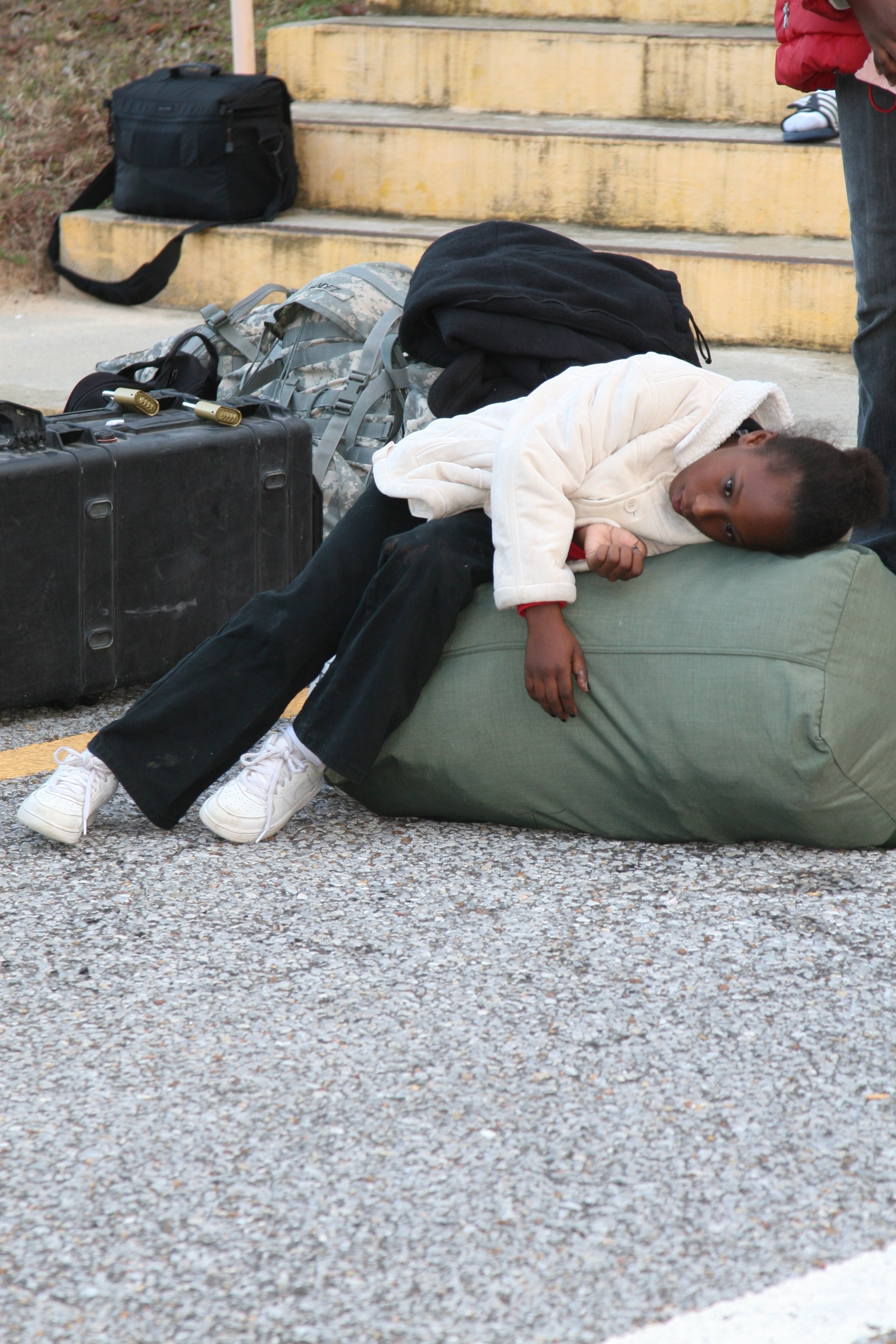Birthdays, anniversaries, baseball games, dance recitals, first words and first steps are all events today's Soldiers sacrifice as they deploy around the world in support of America's missions.
Sure, a lot of things are missed during deployments to places like Iraq, Afghanistan and Kuwait, but is 12 to 15 months long enough for a Soldier to forget his children' In the minds of two Fort Rucker youth, it was.
"They were both very worried that their dad was going to forget who they were while he was gone," Fort Rucker spouse Becky Johns said of her sons Michael, 7, and Matthew, 5. "They were worried he wouldn't know them when he got home."
Johns, whose husband recently returned from a 12-month deployment, said helping her sons understand that their dad wouldn't forget them while he was away was the most "heart wrenching" part of the deployment for her.
"I told them (their dad) wouldn't forget them and we made a photo album full of pictures of the kids to send to him," she said.
Johns said acknowledging the boys' concerns and being open about what was going on helped her get her sons through the long separation from their father.
"We were always very honest with each other," she said.
Honesty and open lines of communication are two key components of helping children survive, even thrive, during deployment, Curtis Williams, Fort Rucker's Mobilization and Deployment Program Manager, said last week.
"Honesty has to be there from day one," he said. "There are so many things that children deal with (during deployment) and honesty and open communication will help them deal with a lot of it."
Fort Rucker Relocation Readiness Program Manager Ruth Gonzalez said it is important that parents not try to hide anything from their children and not wait until the week before deployment to let the kids know mommy or daddy will be going away.
"As soon as you know you are going, it is important to sit down and talk as a Family," she said.
Opening lines of honest communication early with children can set Families up for deployment success, according to Gonzalez, whose own husband is currently deployed.
"My children have handled this deployment very well and have been a great help," she said. "We have been very open and we understand each other."
In the days leading up to a deployment, Gonzalez recommends that the deploying parent spend some one-on-one time with each of their children.
"It's really important for that parent who is leaving to have some one-on-one time," she said. "Whether it is just going out to eat or watching a movie together, it is important to spend some special quality time together and talk openly and honestly about what is coming up."
Each child, depending on age and maturity, will deal with deployment differently and may present parents different challenges and questions, according to Williams.
To best meet the needs of their children during deployment, Williams, Gonzalez and Johns all agree that the parent who is at home with the kids must take time to take care of themselves.
"You need your alone time, you need time to recharge your batteries and get ready for whatever might be coming up," Gonzalez said. "It is okay to get that time alone so you can take care of yourself."
Gonzalez said children will often reflect how well parents deal with a deployment themselves.
"Some kids handle deployment better than others and I believe that has a strong link to how their parents are handling the deployment," she said.
Johns said keeping her boys busy and keeping them connected to their dad through the Internet, letters and packages kept their Family strong and made the 12 months pass quickly.
"Time goes fast when you have something to look forward to," Johns said. "I tried to keep them busy and give them special things to look forward to."
Johns advises that Families about to embark on a deployment separation should try to maintain a positive attitude and stay strong.
"Make the best of this situation," she said. "You can't bring your Soldier home but you can stay busy, stay strong, get involved in the community and take advantage of all the services that are out there."
Johns, a military spouse for the past 18 years, said it is also important to remember that there is always a light at the end of the deployment tunnel.
"Take it day by day," she said. "You will have your bad days but remember, eventually, the deployment will come to an end."


Social Sharing